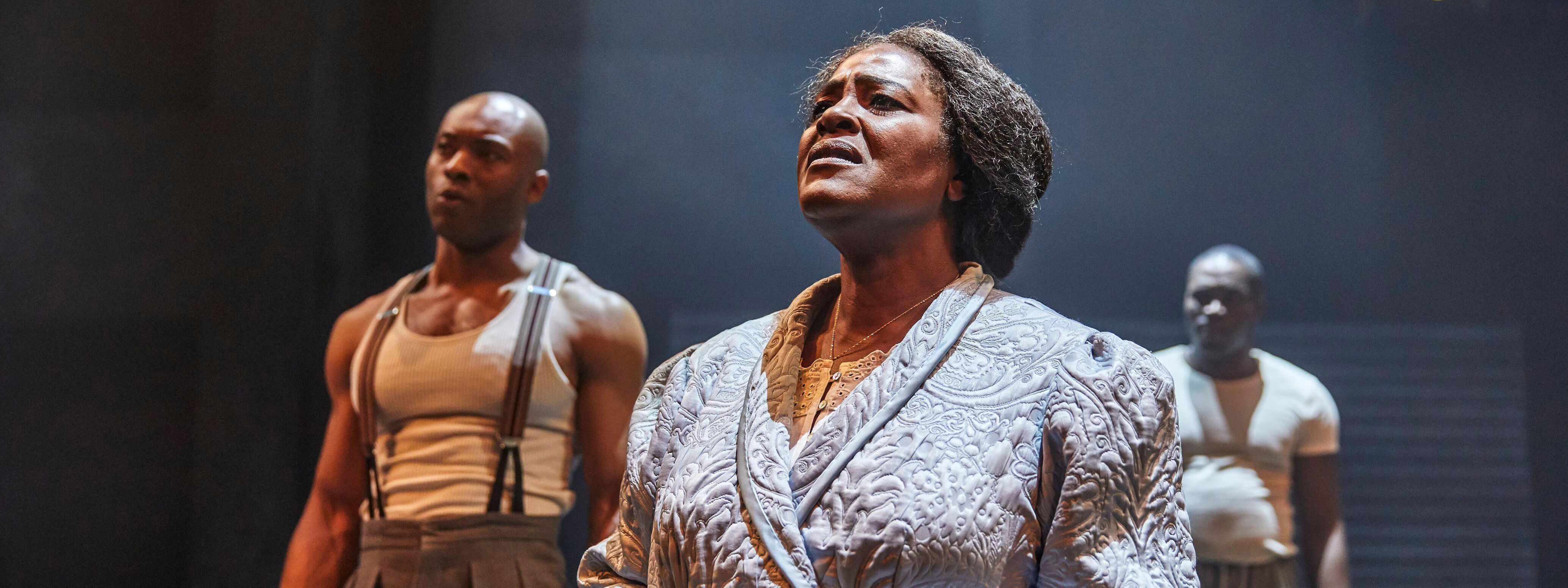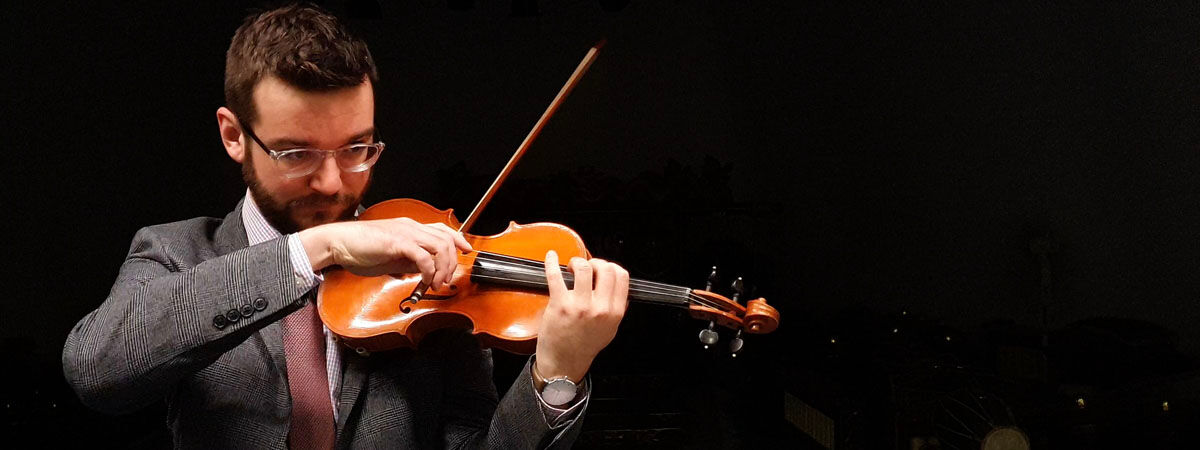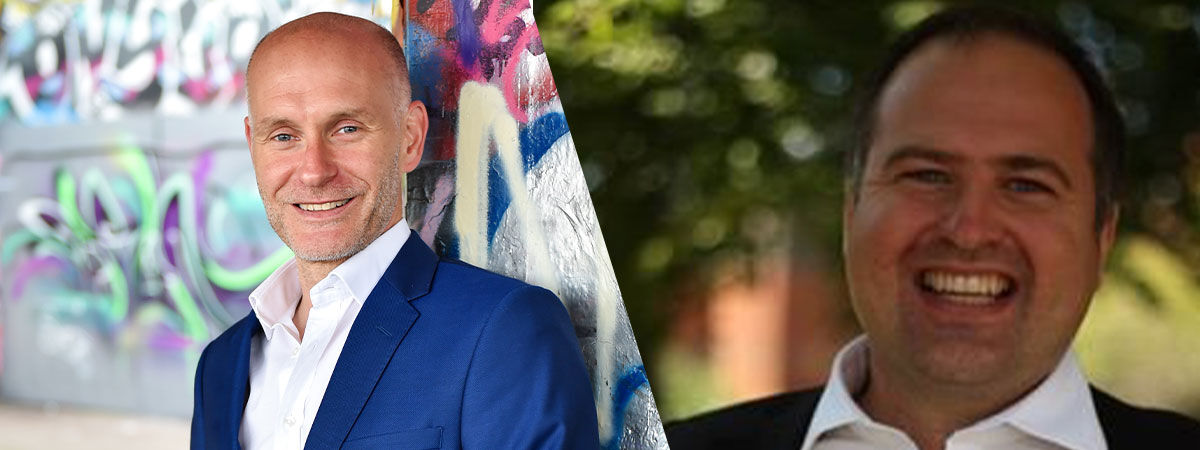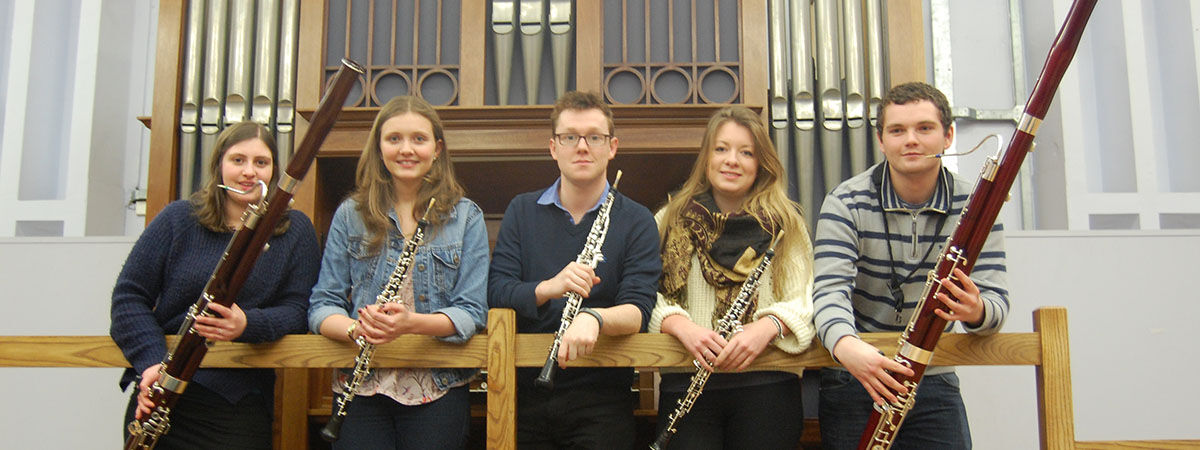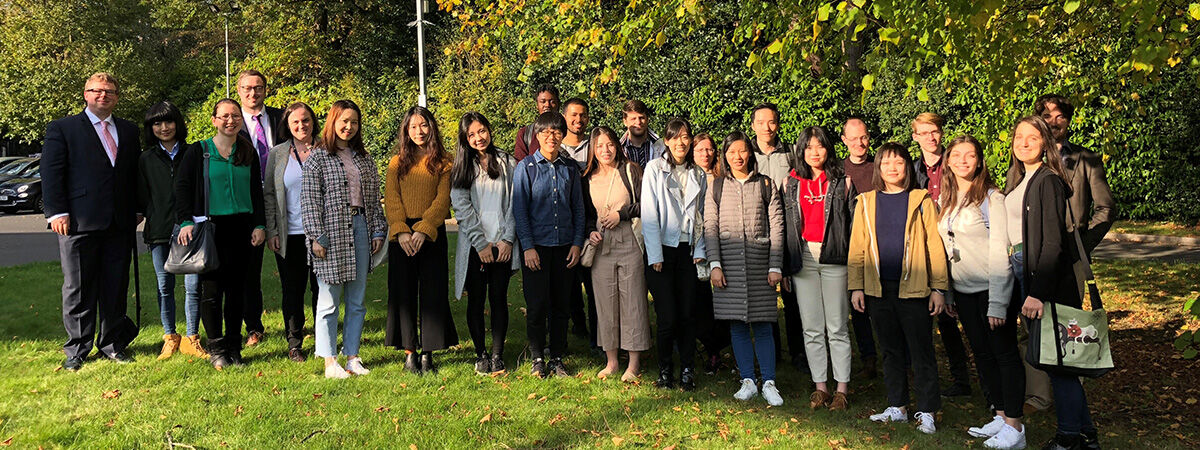Welcome to the seventh instalment of the second series of ‘Passing the Baton’.
Each week, a member of the RBC community will interview a colleague to gain some insight into how the coronavirus crisis has affected their life, both professionally and personally. The interviewer will then pass the baton to the interviewee who will go on to present their questions to another person until finally closing the loop with an interview with our first candidate.
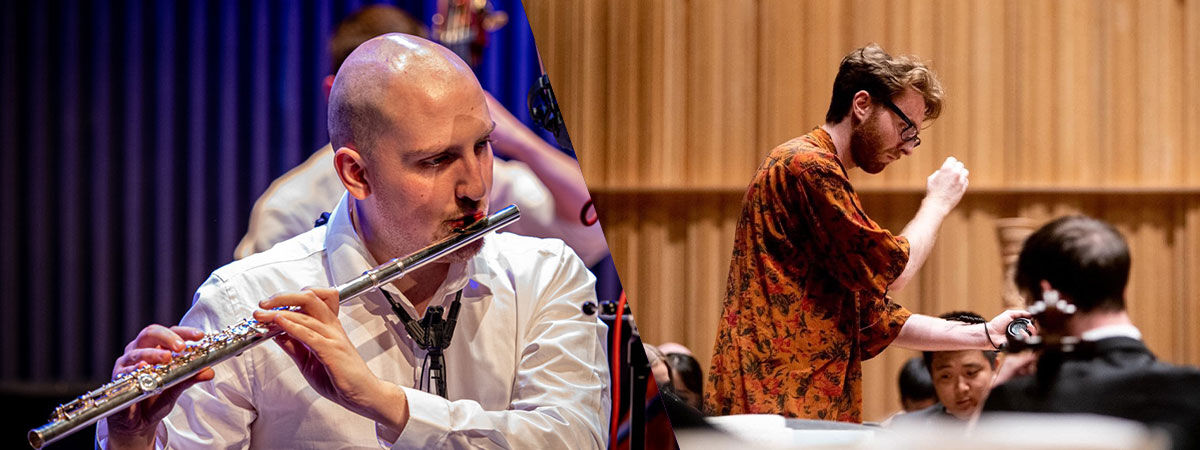
This week BMus Jazz multi-instrumentalist Josh Landsburgh talks to 2020 BMus Composition graduate George West.
Josh Landsburgh (JL)
During lockdown, we saw the first anniversary of your orchestral piece ‘the planet is on f***ing fire’ – it seems like right now more than ever, the world as we know it is burning around us! What are you most and least excited by about what could rise out of the embers of 2020?
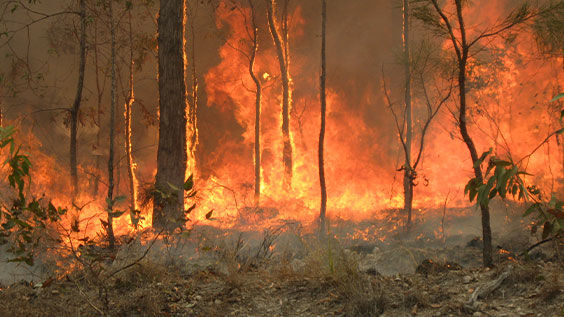
George West (GW)
I see what you did there – we love a cheeky bit of word play. I am most excited for the revolution – hopefully it’ll be streamed or something – and least excited to see my hairline and bank account by the end of the year.
JL
That same work focused heavily on the amount of paper that musicians go through in their lives – how accessible do you think reading music on tablets, etc. is at the moment, and do you think the technique of this (moving pages on with pedals, etc.) should be taught in educational institutions?
GW
Using tablets to read and even write or arrange music is great in principle but they’re still expensive for your average family who also have to fork out for their kids’ instruments. I was privileged enough to have parents who were able to buy me my first instrument, but many students I’ve taught are not able to do that let alone buy an iPad (which still produce their own fairly big carbon footprint) to try and be more eco-friendly. More needs to be done to make it easier for working class people to live greener and more sustainable lives and more needs to be done to make our industry greener too. We also have to make sure our institutions are doing everything they can to combat the climate emergency, ensuring they invest ethically, use green energy sources, reduce water and food waste, recycle efficiently, offset their carbon and promote their student workers rights. You can check out how well your university does based on these factors here.
JL
For as long as I’ve known you, your work has always been less prescriptive than standard, allowing performers to interpret the scores in a multitude of ways, and then seeing what the final outcome of those collective interpretations is. Can you talk a little about your approach to composition and how you balance the need for creative control over your work, and giving that freedom to performers?
GW
To be honest, I think traditionally notated music just ain’t that exciting a lot of the time. Text scores are cool because they can be really open and edgy or even extremely instructional and this makes conveying a concept super easy. All the diehard George West fans (i.e. my mom and Andrew Toovey) will know I’m a bit of a conceptualist, every compositional choice I make must serve a concept, usually tied to sustainability in some way. Often this means that I’m not afraid to ask performers to do things outside of their comfort zones, if it serves the concept. Composition is a fluid and ever-changing process, ultimately every piece is a collaboration, if being more liberal and giving more control to the performers makes it easier to facilitate my concept, then you can bet that’s exactly what I’ll do. Maybe that makes me a democratic conceptualist or something?
JL
This year you debuted your major project ‘Make It Work’, based on the 17 Sustainable Development Goals of the UN. How did that project come about and do you have any plans for how you might want to use it in the future?
GW
Like diamonds and every Contextual Studies essay I’ve submitted, ‘Make It Work’ was created fairly last minute, in a mostly stressed and panicked state. For a while my work has been focused on agitating, raising awareness and mobilising people to be more sustainable. I’ve been fortunate enough to have volunteered with VSO and Raleigh International, in Nigeria and Costa Rica (classic gap year vibes, I know) and these experiences introduced me to the UN’s Sustainable Development Goals (SDGs). In short, they’re 17 aspects of sustainability that range from gender equality to climate action. The SDGs are made up of lots of targets and goals that in short drive social progress in these different areas and are on course to be met by 2030. I wanted to cement my work by creating 17 individual responses to each goal and thus the project was created. Moving forward I want to use the project to create more responses to the SDGs with other artists, so if you’ve made it this far through my rambling and want to collaborate, please hit me up!

JL
What do you think a sustainable industry would look like in the future, and until then, what are some basic things that musicians can be doing right now to make the world a better place?
GW
There’s so much we need to be doing to start driving social change. The pandemic has made it clear that the gig economy is broken, it just doesn’t work. As a fresh graduate heading into the third and worst recession at the ripe age of 23 with a BMus, young people are faced with unprecedented challenges. Now more than ever we need progressive, societal change, something like Universal Basic Income that ensures everyone has exactly what they need to survive. With UBI young people could continue to create art without the need to sell their souls and working a 9-5 job. More needs to be done to create clearer and more encouraging pathways into studying at conservatoires particularly for BAME people and people from working class families. I was really happy to see Leeds Conservatoire scrap their audition fees last year and hope other Conservatoires follow suit to make our institutions as accessible as possible. I want to see a society where music education is valued, open to all and most importantly free for all. We have to recognise that everything we do leaves a carbon footprint, it’s our responsibility to offset that as much as possible. In short, eat less meat, Uber less, Primark less, reuse as much as possible and do the research yourself, I don’t have all the answers. The most important thing we have to start doing is to do what we do best - create art that agitates, educates and mobilises people to create a greener, cleaner and sustainable world.
JL
You were due to be graduating in July - what were your plans going forward and how have they changed since the pandemic hit?
GW
I had planned to go back and volunteer with Raleigh internationally but ‘Miss Rona’ said “Nah”. Instead I’ve gotten involved with their Covid-19 UK Response programme, which gives us training on how to run effective campaigns to encourage behavioural change on a large scale. It’s early days, but we’re looking at how we can support young people who, let’s face it, have been criminally shafted as a result of a certain Government and pandemic. Oh yeah, I’ve decided to stay on and do a Master’s in Experimental Performance too.
Next episode George talks to MMus pianist Connor Wilcox.
